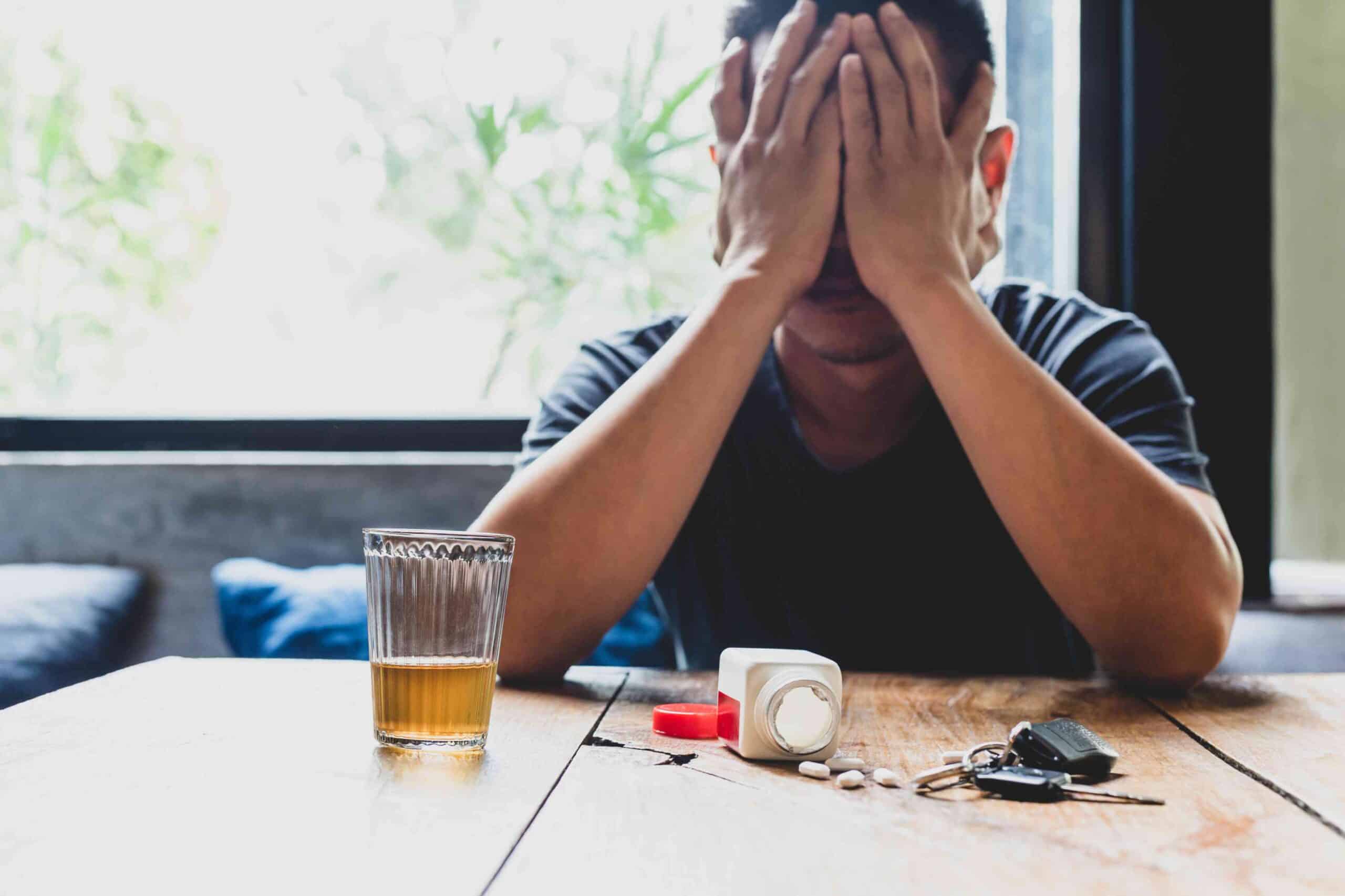


Suboxone and buprenorphine are prescription medications used to treat opioid use disorder and chronic pain. However, both buprenorphine and suboxone have the potential for abuse and dependency. At Experience Ibogaine, we have personalized Ibogaine-based treatment programs to help patients recover from suboxone and buprenorphine addiction. We offer a specialized treatment protocol specifically designed for these drugs. We provide patients with 24/7 care, supervision, and support, as well as a relaxing and calming atmosphere. During our Ibogaine treatment for suboxone and buprenorphine addiction, our patients have complete access to medical professionals, counselors, and safe, affordable treatment. Contact us to learn more.
What is Ibogaine Treatment for Suboxone and Buprenorphine Addiction?
Ibogaine is a plant-based medication with remarkable effectiveness in treating suboxone and buprenorphine addiction. Patients must stop taking subozone and buprenorphine for at least 1-2 months before taking Ibogaine for the treatment to be safe, effective, and worthwhile. Many patients substitute a short-acting opiate during this time. You can detox using an SAO at our facility, but we recommend doing this beforehand to manage treatment costs. Once this process is complete, Ibogaine helps reduce the withdrawal symptoms associated with suboxone and buprenorphine and also offers psychological breakthroughs. We have treated over 2,500 patients, and our medical professionals have remarkable knowledge, experience, and safety records in Ibogaine administration. Our programs are customizable to offer support and recovery to individuals struggling with suboxone and buprenorphine addiction.

Benefits of Ibogaine Therapy for Suboxone and Buprenorphine Addiction
Ibogaine therapy provides many short-term and long-term benefits that help patients recover from suboxone and buprenorphine addiction.
- Detoxification: Ibogaine treatment makes the detoxification process a lot easier. By reducing withdrawal symptoms and cravings, Ibogaine helps patients maintain sobriety.
- Reduces Withdrawal Symptoms: Ibogaine significantly reduces withdrawal symptoms and suboxone and buprenorphine cravings after detoxification by targeting the opiate receptors in the brain. Under reliable supervision, Ibogaine therapy can help eliminate dependency.
- Addresses Underlying Psychological Issues: Ibogaine therapy enables a period of unique psychological introspection in patients, which can potentially help them address underlying reasons for dependency and psychological issues associated with addiction. This introspective period can be a crucial part of the healing process and helps patients begin the journey to long-term recovery.
- Long-Term Recovery Support: Ibogaine therapy has serious implications, which is why we highly emphasize pre-treatment counseling and post-treatment recovery support. Our programs include rigorous monitoring and aftercare recommendations to ensure patients leave the facility fully equipped for long-term recovery.
- Reduces Cravings Post-Treatment: When patients are done with Ibogaine treatment, they observe a noticeable reduction in their physical cravings and withdrawal symptoms associated with suboxone and buprenorphine addiction.
How Does Ibogaine Treatment for Buprenorphine and Suboxone Addiction Work?
At Experience Ibogaine, we have curated comprehensive Ibogaine treatment procedures for buprenorphine and suboxone addiction. Here’s what’s included in the treatment:
Pre-Treatment Preparation
Before treatment begins, each patient is assigned a dedicated care provider from our team of psychologists and therapists. Your care provider will understand your needs, provide pre-treatment counseling, and help you understand our treatment protocols. Before patients come to our facility, we recommend that they substitute a short-acting opiate for 1-2 months. This allows them to save time and money by choosing our 5-day plan.
Detox Process
If you have not detoxed before you come to stay with us, we will help you detox using saline flushing and a short-acting opiate. During this time, you will have the opportunity to detox, spend time with other patients facing similar challenges, and use our sauna to aid with the flushing process. We encourage patients to plan their recovery and aftercare during this time.
Assessing Potential Risks and Screening
We perform extensive medical testing to ensure every patient is a safe candidate for Ibogaine treatment. Every patient must submit a urine and blood sample. We also perform an EKG to check heart function and a liver function test to check for deficiencies or contraindicated drugs. If you are not a safe candidate, we will send you home with a full refund.
Ibogaine Dosage Assessment
After testing, we determine your Ibogaine dosage, personalized for each patient to prioritize safety and efficacy. Our dosage assessment is extremely precise and transparent to minimize risks and provide safe but effective treatment.
Ibogaine Treatment Procedure
We begin Ibogaine treatment after a patient has fasted for around nine hours. During treatment, patients are given their Ibogaine dose under the supervision of medical personnel in a private room. The room has an accessible call bell that each patient can use to call medical staff for immediate attention. As part of the treatment, patients receive medications to ease residual withdrawal symptoms the following day. Patients who have just recently detoxed from suboxone and buprenorphine addiction may have a longer recovery period than most. Patients are connected to a heart monitor during the treatment.
Post-Treatment Care
Nurses will be available during your recovery period to provide you with medical care. During their recovery, patients have access to a range of facilities, including excellent food, cable TV in each room, a steam room, and a hot tub, all surrounded by a serene atmosphere. You will get two psychedelic integration coaching sessions when you depart from us, as well as booster Ibogaine doses.
Ibogaine Treatment Options Tailored for Buprenorphine and Suboxone Addiction
We have tailored options for Ibogaine treatment for patients with buprenorphine and suboxone addiction.
5-Day Opiate Detox
The 5-day opiate detox is a short-term detox program at Experience Ibogaine, designed for individuals seeking a short stay with us. It includes Ibogaine treatment, counseling, and 5-MeO-DMT sessions.
1-2 Month Suboxone Detox Program
The suboxone detox program is our longest program. This program is designed for individuals struggling with suboxone addiction. In this program, we provide extensive counseling, continuous support, and 24/7 medical supervision to help patients heal and recover long-term.
Why Choose Experience Ibogaine for Suboxone Addiction Treatment?
Here’s why so many patients have to come to us to kickstart their recovery:
- Relaxed, Safe Atmosphere and Setting: A relaxing, safe, and serene environment surrounds our facility. We provide ample outdoor space for leisurely activities, complemented by ocean views. We have high safety standards due to our seasoned medical team. We have years of experience helping patients with subozone and buprenorphine dependency.
- Luxurious Amenities: Our facility has a range of amenities to help make our patients’ stay as convenient and luxurious as possible, including excellent food, furnished rooms, cable TV in each room, a steam room, and a hot tub.
- Individualized Treatment Plans: We customize our treatment programs according to your needs and prioritize your safety and well-being over everything else.
- 24/7 Medical Supervision: Our medical staff supervises our patients 24/7. During treatment, patients have a call bell in their room, which they can use if they need immediate assistance.
Contact Ibogaine Specialists for Buprenorphine and Suboxone Addiction in Mexico
Ibogaine has helped many patients struggling with buprenorphine and suboxone addiction. Call us today for more information about how we can help you begin the recovery process.
We offer a variety of Ibogaine treatment programs tailored to different conditions, including:
Frequently Asked Questions (FAQs)
Ibogaine treatment starts in the evening after the patient has fasted for half a day. It lasts overnight, and the patients get medications and nutritious food the next day to help them with withdrawal symptoms. Most patients stay with us for at least 35+ days.
The cost of Ibogaine treatment for suboxone addiction depends on several factors, including the patient’s condition and symptoms, prescribed medication, and the length of stay the patient chooses. Call us for more information.
Explore More Treatments
- Ibogaine for Pain Management
- Ibogaine Hydrochloride Treatment
- Ibogaine Therapy for Drug Addiction
- Ibogaine Treatment for Alcohol Addiction
- Ibogaine Treatment for Anxiety & Depression
- Ibogaine Treatment for Cocaine Addiction
- Ibogaine Treatment for Fentanyl Addiction
- Ibogaine Treatment for Heroin Addiction
- Ibogaine Treatment for Methadone Addiction
- Ibogaine Treatment for Methamphetamine Addiction
